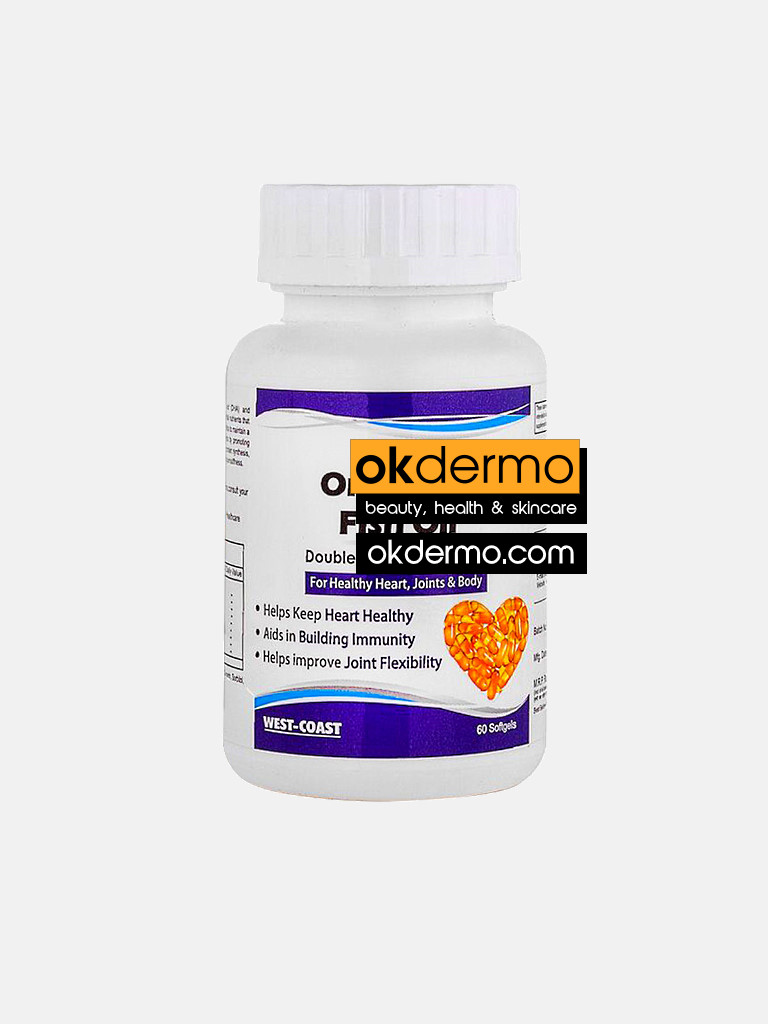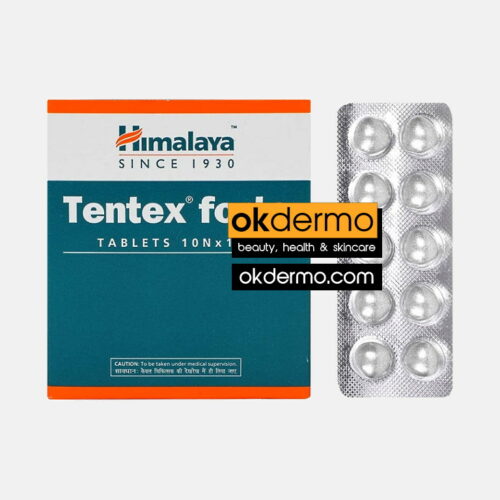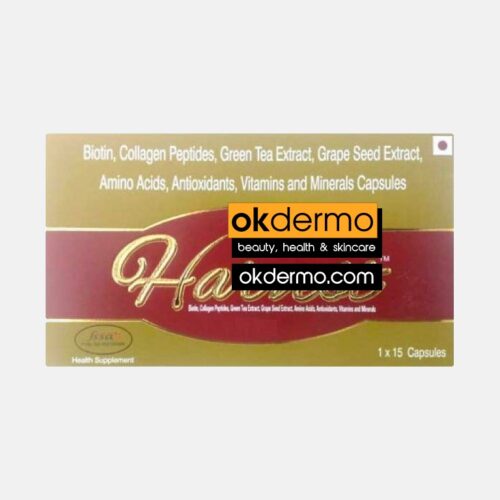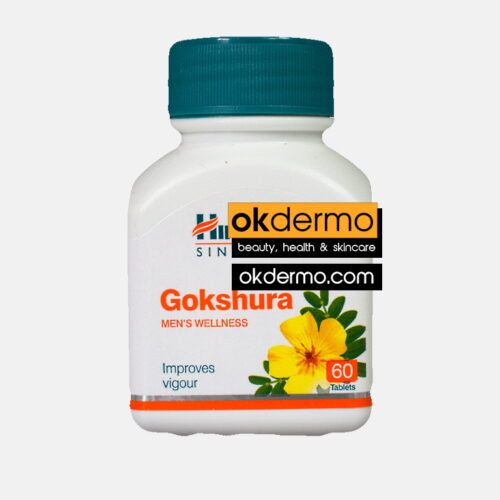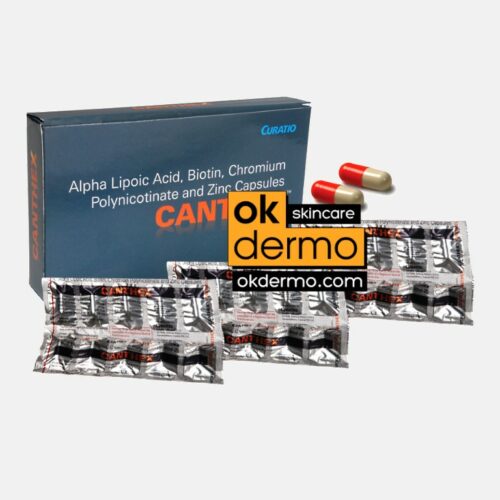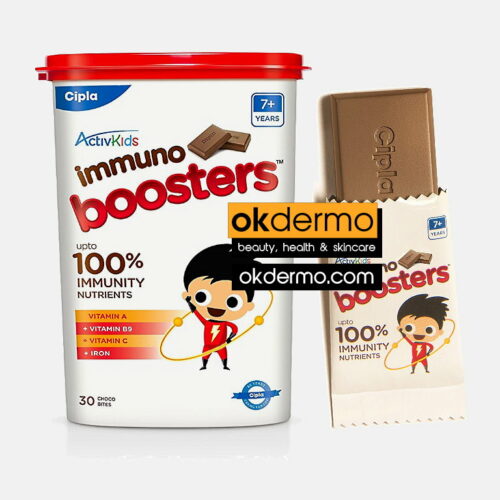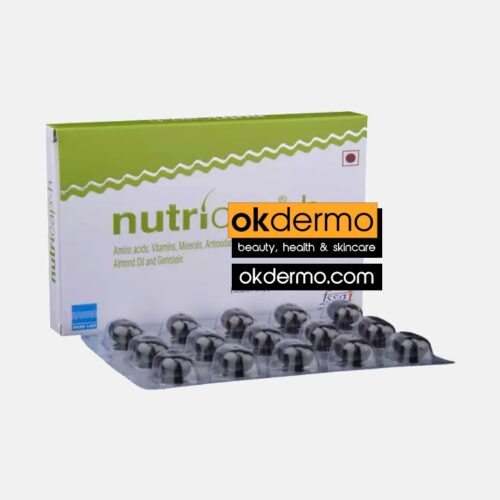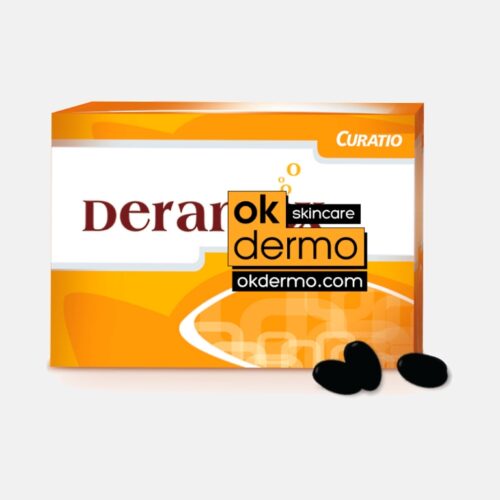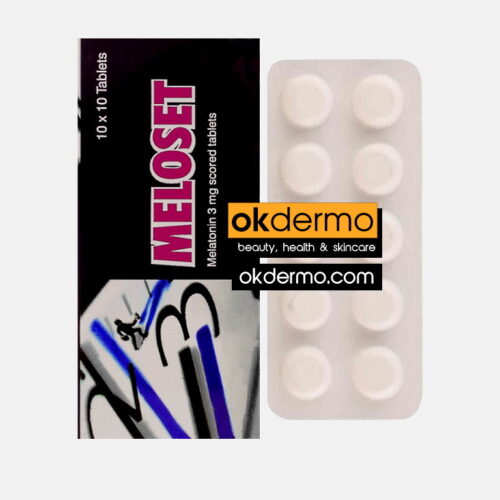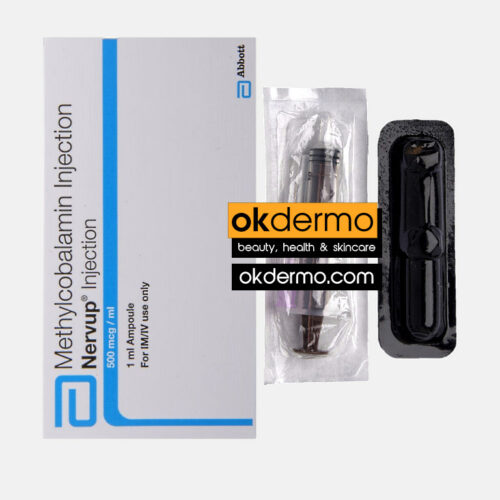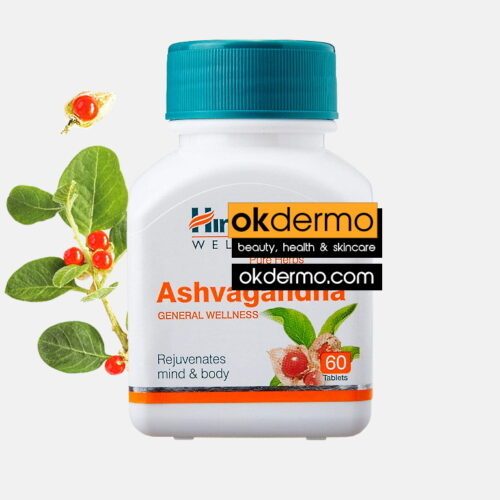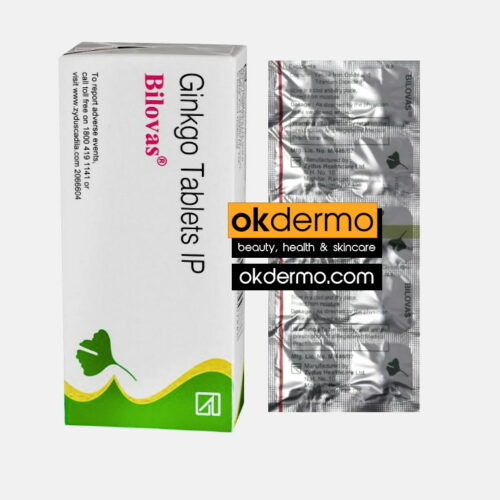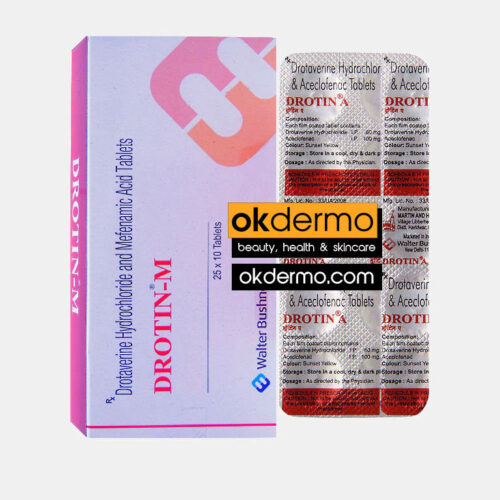Description
What is HealthVit® Omega-3 Softgel?
HealthVit® Omega-3 Softgels contain Omega-3 polyunsaturated fatty acids, Eicosapentaenoic Acid 180mg, and Docosahexaenoic Acid 120mg. Omega-3 polyunsaturated fatty acids are found in oils from certain types of fish, vegetables, and other plant sources. These fatty acids are not made by the body and must be consumed in the diet.
Omega-3 Polyunsaturated Fatty Acids work by lowering the body’s production of triglycerides. High levels of triglycerides can lead to coronary artery disease, heart disease, and stroke. Fish Oil is used together with diet and exercise to help lower triglyceride levels in the blood. Fish Oil may also be used for purposes not listed in this medication guide.
Eicosapentaenoic Acid – is a fatty acid found in the flesh of cold-water fish, including mackerel, herring, tuna, halibut, salmon, cod liver, whale blubber, or seal blubber.
Eicosapentaenoic acid is taken by mouth for some heart-related conditions including clogged heart arteries (coronary artery disease), to prevent or treat heart attacks, and to reduce levels of blood fats called triglycerides in people with very high levels. It is also used for some mental conditions including schizophrenia, personality disorder, Alzheimer’s disease, depression, and attention deficit-hyperactivity disorder (ADHD). It is also used to prevent loss of vision that occurs in older people (age-related macular degeneration; AMD), for psoriasis, asthma, cystic fibrosis, and diabetes. Eicosapentaenoic acid is also used for lung cancer, prostate cancer, to help maintain body weight in people with cancer, and to reduce the side effects of chemotherapy in people with cancer.
Women use eicosapentaenoic acid to reduce symptoms of menopause, to reduce high blood pressure during high-risk pregnancies, and to reduce the risk of an infant having delayed growth while still in the uterus.
Eicosapentaenoic acid is used in combination with docosahexaenoic acid (DHA) in fish oil preparations for a variety of conditions, including preventing and reversing heart disease, and decreasing irregular heartbeats; as well as asthma, cancer, menstrual problems, hot flashes, hay fever, lung diseases, lupus, and kidney disease caused by an immune reaction. The combination is also used for migraine headache prevention in adolescents, skin infections, Behçet’s syndrome, high cholesterol, high blood pressure, psoriasis, Raynaud’s syndrome, rheumatoid arthritis, Crohn’s disease, and ulcerative colitis.
Eicosapentaenoic acid is used in combination with RNA and L-arginine after surgery to reduce infections, improve wound healing, and shorten recovery time. It is also used in combination with another fatty acid, gamma-linolenic acid, for high blood pressure. Eicosapentaenoic acid is given intravenously (by IV), along with DHA, for psoriasis.
Don’t confuse eicosapentaenoic acid with similar fatty acids, such as alpha-linolenic acid and DHA, as well as with oils like krill or fish oils, which contain both eicosapentaenoic acid and docosahexaenoic acid. Most available data involving eicosapentaenoic acid are from research and clinical experience with fish oil products containing variable combinations of eicosapentaenoic acid and docosahexaenoic acid. For more information, see the separate listings for Alpha-Linolenic Acid, DHA, Fish Oil, and Krill Oil.
Docosahexaenoic Acid – or DHA, is a type of omega-3 fat. Like the omega-3 fat eicosapentaenoic acid (EPA), DHA is plentiful in oily fish, such as salmon and anchovies. Your body can only make a small amount of DHA from other fatty acids, so you need to consume it directly from food or a supplement.
For general good health, aim for 250–500 mg daily of DHA plus EPA from fish, supplements, or both. For specific health concerns, higher doses may be used with your doctor’s guidance.
Together, DHA and EPA may help reduce inflammation and your risk of chronic diseases, such as heart disease. On its own, DHA supports brain function and eye health. Here are 12 science-backed health benefits of DHA:
- Reduces Heart Disease Risk. Though both DHA and EPA support heart health, DHA may be more effective at increasing your omega-3 index, decreasing triglycerides, and improving your cholesterol profile.
- May Improve ADHD. Children and adults with ADHD commonly have lower blood levels of DHA, which plays a key role in brain function. The majority of studies testing the effects of DHA supplements in children with ADHD have shown benefits to behavior or attention.
- Reduces the Risk of Early Preterm Births. Taking 600–800 mg of DHA daily during pregnancy could significantly reduce your risk of early preterm birth. Bear in mind that some prenatal vitamins don’t contain DHA.
- Fights Inflammation. Increasing DHA intake may help reduce inflammation and balance the excess of inflammatory omega-6 fats typical in Western diets. Therefore, DHA may help counteract symptoms of conditions like rheumatoid arthritis and heart disease.
- Supports Muscle Recovery After Exercise. DHA — alone or combined with EPA — may help reduce muscle soreness and limitations in range of motion after exercise, partly due to its anti-inflammatory effects.
- Helps Some Eye Conditions. DHA may improve certain eye conditions, including dry eyes and diabetic retinopathy. It may also decrease contact lens discomfort and reduce eye pressure, a risk factor for glaucoma.
- May Reduce Your Risk of Certain Cancers. Higher intake of fish oils such as DHA has been linked to a lower risk of several cancers, including colorectal, breast, and prostate cancer. Preliminary studies suggest that DHA may improve chemotherapy benefits, but more research is needed.
- May Help Prevent or Slow Alzheimer’s Disease. DHA is important for brain function, and higher omega-3 intake may reduce your risk of types of dementia like Alzheimer’s. It’s unclear whether DHA can slow Alzheimer’s progression, but success may be more likely if you begin supplementing early.
- Lowers Blood Pressure and Supports Circulation. DHA may support the proper functioning of your arteries, improve blood flow, and lower blood pressure. This may help reduce heart attack and stroke risk.
- Aids Normal Brain and Eye Development in Babies. DHA is important for a baby’s brain and visual development. A mom’s DHA is passed to her infant during pregnancy — especially during the third trimester — as well as through breast milk. Babies born preterm may benefit from supplemental DHA.
- Supports Men’s Reproductive Health. Without enough DHA, sperm health and motility are compromised, which can reduce a man’s fertility.
- May Help Protect Mental Health. Adequate DHA and EPA levels are linked to a reduced risk of depression. These fats support serotonin — a nerve messenger that helps balance your mood. Plus, they have anti-inflammatory effects on nerve cells, which may reduce depression risk as well.
Take DHA and other fish oil supplements under a doctor’s guidance if you have a health condition, are taking certain medications, or have fish allergies. Freezing fish oil capsules may reduce fishy tastes and burps. DHA is an omega-3 fat that you should consume from food, supplements, or both, as your body doesn’t produce much of it.
It may help prevent or improve chronic conditions, such as heart disease, certain cancers, Alzheimer’s disease, depression, and inflammatory conditions like rheumatoid arthritis. DHA is also essential for sperm health and healthy pregnancy, including a reduced risk of preterm births and the proper development of babies’ brains and eyes. In children, it may improve ADHD symptoms. For general good health, aim for 200–500 mg daily of DHA plus EPA from food, supplements or both.
Brand Names: Animi-3, Cardio Omega Benefits, Divista, Dry Eye Omega Benefits, EPA Fish Oil, Fish Oil, Fish Oil Ultra, Flex Omega Benefits, Icar Prenatal Essential Omega-3, Lovaza, Marine Lipid Concentrate, MaxEPA, MaxiTears Dry Eye Formula, MaxiVision Omega-3 Formula, Mi-Omega NF, Mom’s Omega Advantage, Omega Essentials, Sea-Omega, Sea-Omega 30, TheraTears Nutrition, TherOmega, Vascazen

